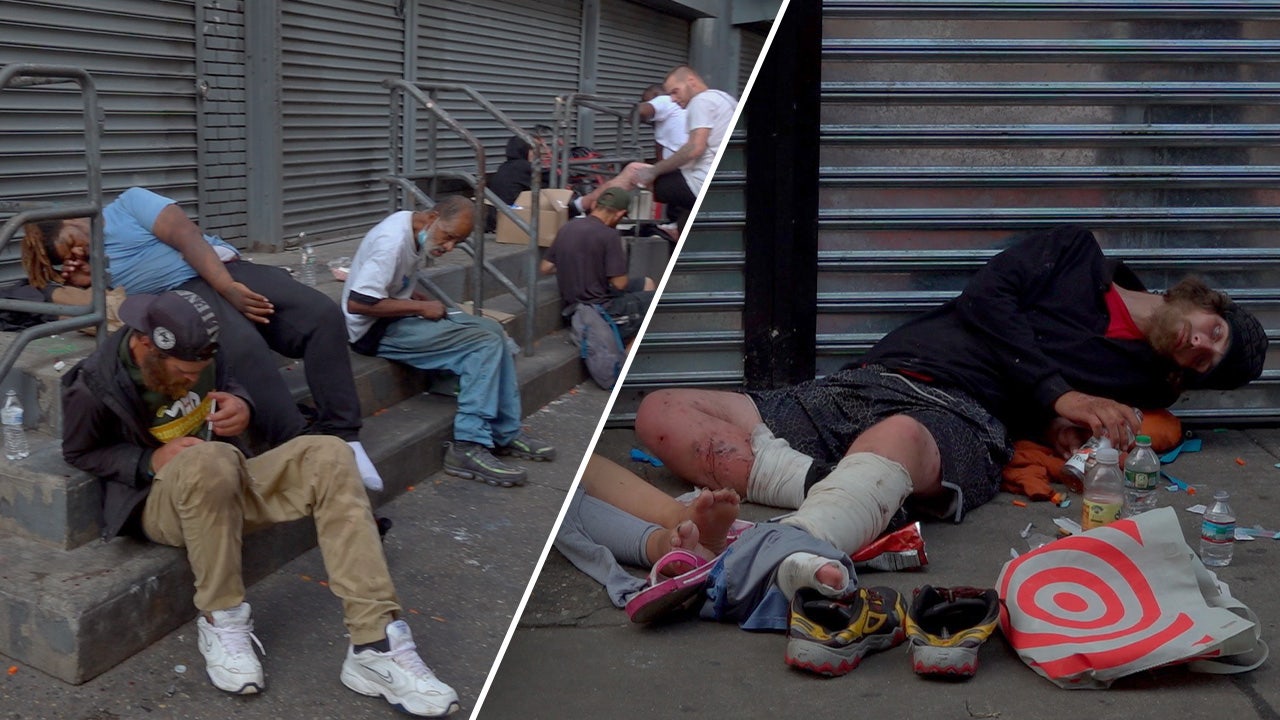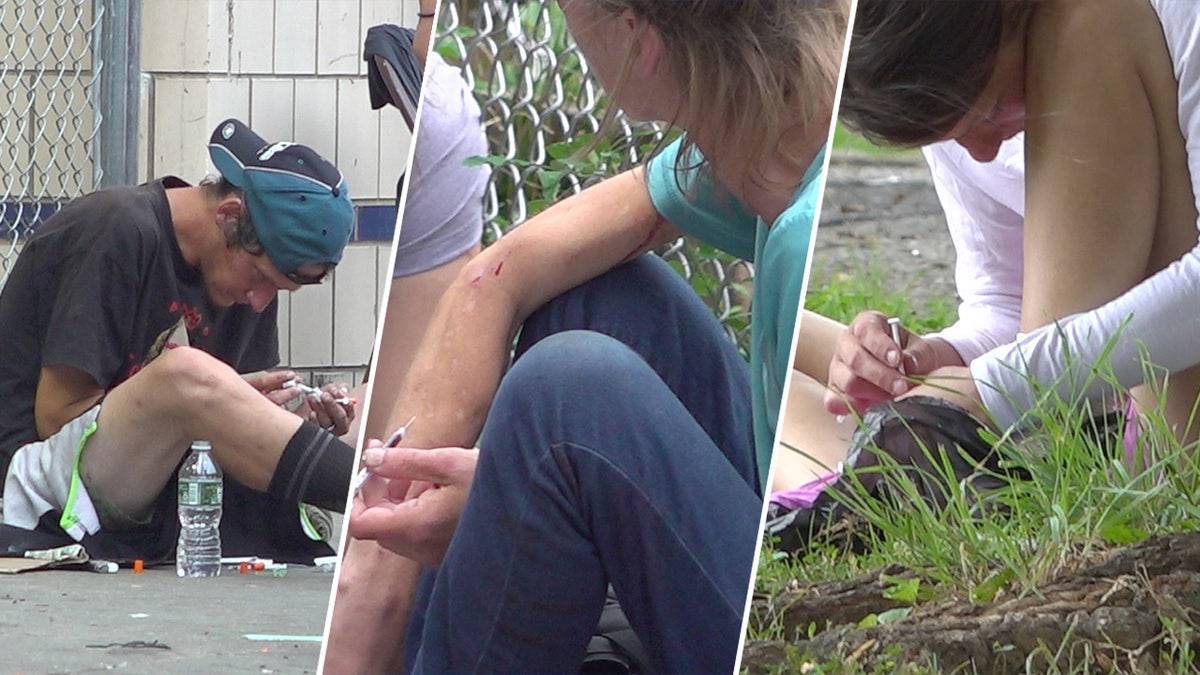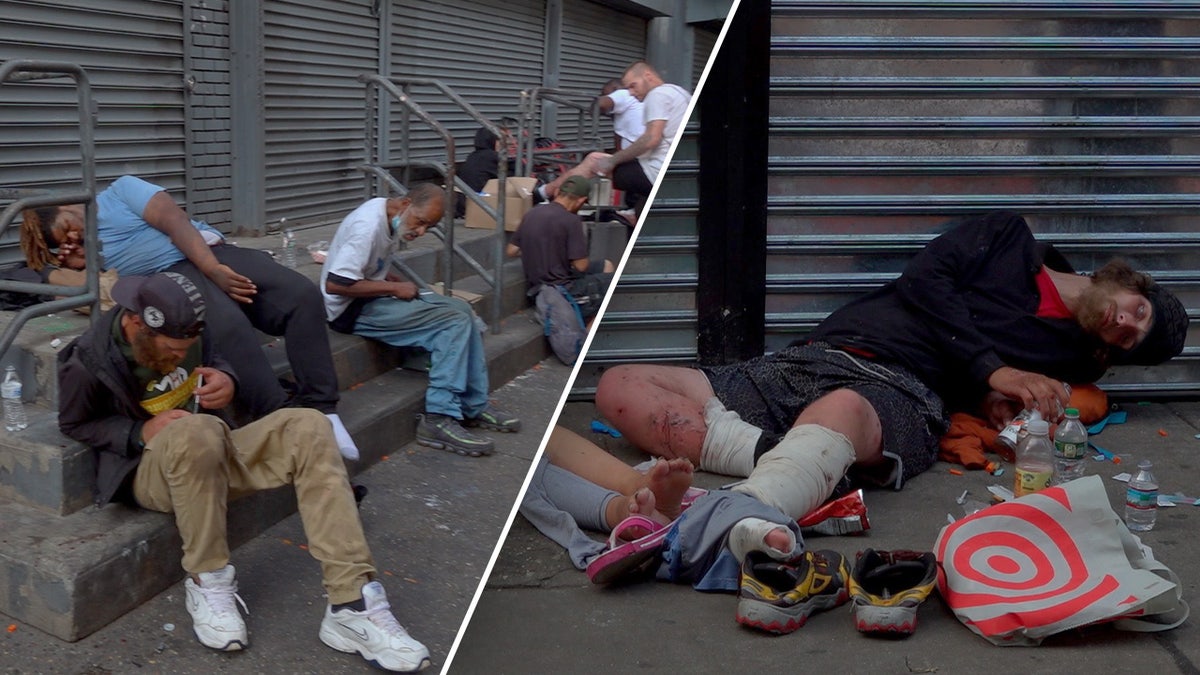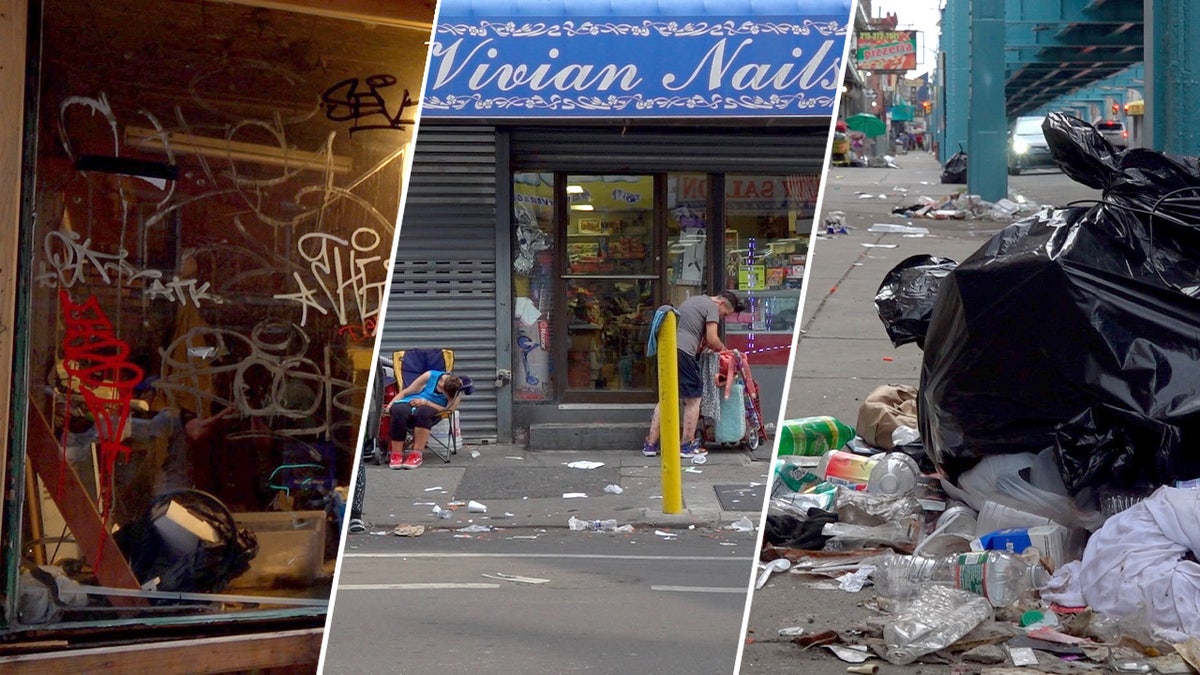
WARNING: This story contains graphic images.
A new bill would impose curfews on some businesses in Kensington’s open-air drug market as addiction and crime run rampant in the Philadelphia neighborhood.
City Councilmember Quetcy Lozada introduced a bill on Thursday requiring some commercial establishments and restaurants to close between 11 p.m. and 6 a.m. if they are within a specific area of the Kensington neighborhood, including the infamous Kensington Avenue. The proposal is one of the latest to address issues in Kensington, an area that has become the epicenter of the city’s drug crisis.

Kensington, the Philadelphia neighborhood known for its open-air drug market, has gained international attention for its extreme public drug use. (Fox News/Megan Myers)
“In order to address the crisis in Kensington, we need a better understanding of who is there and what is happening,” Lozada, whose district includes Kensington, said in a press release.
Kensington, known internationally for its excessive public drug use, is among the Philadelphia areas most impacted by overdose fatalities, according to city health department data. Over 1,400 people citywide died from drug overdoses in 2022, an 11% increase since the previous record-high the year prior.
On any given day, drug users can be seen scattered across the sidewalks, injecting themselves with needles as blood trickles down their arms. Others stumble across Kensington Avenue in a stupor or passed out on the pavement with fleas covering their gruesome, flesh-eating wounds from the addicting animal tranquilizer, xylazine.

Drug users gather on the streets of Kensington Avenue. Some inject themselves with needles and one user is slumped over on a stoop. (Fox News/Megan Myers)
The neighborhood has also become a focal point for high crime and poverty in the City of Brotherly Love. Kensington had among the worst violent and drug crime rates citywide over a 30-day period ending Jan. 26, according to data compiled by The Philadelphia Inquirer.
“I want to strongly commend Councilmember Quetcy Lozada for her legislation, and we look forward to working with her as these bills move through Council’s legislative process,” Philadelphia Mayor Cherelle Parker said in a statement on Thursday. “The purpose of the legislation introduced is to address the kinds of social ills – open-air drug markets, illegal drug activity, nuisance businesses – that erode quality of life in neighborhoods across our city, including Kensington.”

Trash builds up along Kensington Avenue. Drug users are slumped over outside storefronts with needles in their hands. (Fox News/Megan Myers)
Lozada’s legislation follows the executive order Parker signed Jan. 2 — the Democrat’s first act in office — declaring a public safety emergency to stop rampant crime and excessive drug addiction plaguing the city’s neighborhoods. She also assigned Police Commissioner Kevin Bethel and city partners to develop strategies to dismantle open-air drug markets, like Kensington, as part of her “100-Day Action Plan.”
Additionally, Bethel swore in Deputy Commissioner Pedro Rosario on Jan. 11 to lead the Philadelphia Police Department’s public safety approach in Kensington.
“For too long, Kensington has borne the scars of drugs and blight,” Bethel said in a statement. “It’s our charge to turn the tide, and to lead this effort, I’m excited to announce the creation of a new position within the department: Deputy Commissioner of the Kensington Initiative.”
WHAT KENSINGTON’S OPEN-AIR DRUG DEN LOOKS LIKE ON A GLOOMY, SUMMER AFTERNOON:
CLICK HERE TO GET THE FOX NEWS APP
Lozada’s bill was part of a package of legislation that would also require quarterly reports from Parker’s administration about how often the city’s first responders use an opioid antidote and if an individual is given treatment more than once in a 30-day period, according to a press release. Another bill would request data on the number of illegal encampments citywide.
“Through our first few weeks in office, I’ve made it clear: the rampant illegal drug activity and other quality-of-life nuisances taking place in Kensington will not be tolerated by the Parker administration,” the mayor said in a statement. “And we look forward to working with our strong partners in City Council, including Councilmember Lozada, on this important legislation.”
